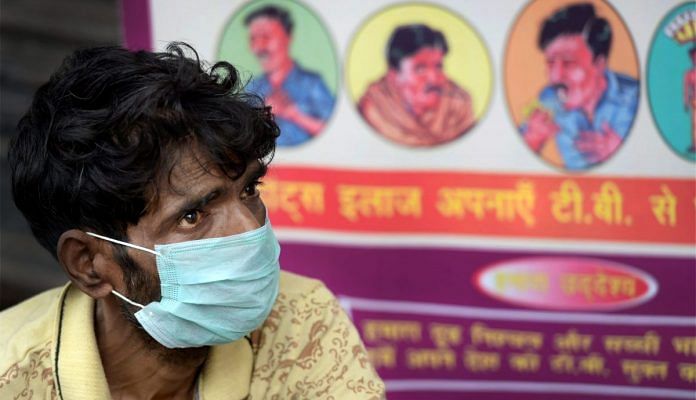New Delhi: A small public-private partnership project between 1MG — a private healthcare platform — and the government of India’s DOTS (directly observed treatment, short-course) programme is keeping the campaign to control tuberculosis (TB) running, despite all the issues faced during the Covid-19 pandemic.
The initiative, launched during the pandemic, made it to a World Health Organization (WHO) list of global best practices to combat the disease, released late last year.
The project began in 2020 in Faridabad, Haryana, and has now expanded to Gujarat, with 1MG not only delivering medicines and diagnostics to patients’ doorsteps, but also making monthly calls to ensure compliance. It now has over 7,000 TB patients registered under it in Faridabad, Surat and Ahmedabad.
1MG was bought by the Tata group in 2021.
Unlike 1MG’s usual operations, patients do not have to pay for the medicine. They are given medicines under the DOTS programme, but instead of having to travel to the DOTS centre every few days, the medicine reaches the patient’s doorstep every month. There is also telephone counselling to ensure adherence.
According to the WHO’s Global Tuberculosis Report 2021, India accounted for 41 per cent of the global dip in reporting TB cases during the Covid pandemic.
“The countries that contributed most to the global drop between 2019 and 2020 were India (41 per cent), Indonesia (14 per cent), the Philippines (12 per cent) and China (8 per cent); these and 12 other countries accounted for 93 per cent of the total global drop of 1.3 million,” said the report, titled ‘Global Tuberculosis Report 2021’.
However, government officials are hopeful that projects with patient-provider support agency such as 1MG could help recover some of the lost ground. This World TB Day, at a function presided over by Prime Minister Narendra Modi, several programmes to that end will also be launched.
Also read: Govt employing multi-sectoral, holistic response towards TB elimination: Official
Long treatment
Treating TB is a long process that may go on for nine months at times, leading to patients often dropping out without completing the full course.
The DOTS programme was devised to ensure compliance. Under the programme, medicines are given only for a few days. Patients need to come back to the centre frequently for “direct observation” of their compliance.
But this need to travel to the centre can, in some situations, become a deterrent, especially as the patient’s symptoms start getting better. This is where 1MG’s delivery network comes in.
“The medicines are paid for by the government. We ensure delivery, and once every month, there is a call to the patient to check compliance. Unlike the usual 1MG sales calls, this is for purposes of counselling,” a 1MG official told ThePrint.
“Diagnostic services are also delivered at the doorstep. The project has made a significant change in the lives of more than 7,000 TB-positive patients living in Delhi NCR and Gujarat. The projects started from mid-2020 and are currently ongoing.”
There are also talks about a similar project in Delhi, sources said.
The project is paid for partly by a global fund grant through the government of India’s development partners, though the individual pilots are partnerships with the respective state governments.
Global TB Best Practices
In 2021, the World Health Organization compiled a list of global best practices that had helped keep TB control on track despite the unprecedented disruptions of the Covid pandemic. The Faridabad project was one of the models showcased there.
“Increased smartphone use coupled with high-speed internet and a positive environment for digital technology in India has created a favourable ecosystem for digital health. The aim of our strategy was to provide maximum services to patients at home, including sputum sample collection, medication delivery and counselling,” the description reads.
“1MG periodically reminded patients of their upcoming visit to a doctor and medication refill times to ensure adherence to treatment. A call centre was set up to manage services and provide periodic remote counselling to patients. An incentive model of engagement with health providers linked patients to the pilot ecosystem.”
Approximately 60-70 per cent of people who were approached to be part of the programme agreed.
“One of the reasons for not accepting this service was reported as stigmatisation, as patients did not want to reveal their illness to others. Our service provided 250 cartridge-based nucleic acid amplification diagnostic tests and 4,500 drug deliveries. Test results were delivered to patients within 2.5 days of home sample collection, and medicines were delivered to patients’ homes within about 1.5 days,” reads the status report.
(Edited by Manoj Ramachandran)
Also read: Covid left big gap in TB reporting, Modi govt looks to fill it with special door-to-door drive



